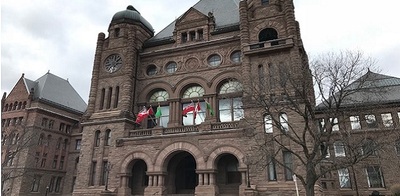Executive Brief
Chief Operating Officer
Office of the Auditor General of Ontario
About the Office of the Auditor General of Ontario

The Auditor General watches over the administration of Ontario’s finances to help the Legislature hold the government accountable. The Auditor does this by carrying out detailed scrutiny of government spending and then producing Annual and Special reports that provide MPPs with the information they need to judge how well public resources are being used.
The work of the Office is performed under the authority of the Auditor General Act. In addition, under the amended Government Advertising Act, 2004, the Auditor General is responsible for reviewing and approving certain types of proposed government advertising for compliance with this act. Also, they have a requirement to report on certain government reporting under the Fiscal Sustainability, Transparency, and Accountability Act, 2019, and in a year in which a regularly scheduled election is held, the Auditor General is required to review and deliver an opinion on the reasonableness of the government’s multi-year fiscal plan with its expectations for the financial performance of the Province over the next three fiscal years.
On April 1, 2019, the Restoring Trust, Transparency, and Accountability Act, 2018 transferred many of the responsibilities of the former Office of the Environmental Commissioner of Ontario to the Office of the Auditor General of Ontario. A Commissioner of the Environment, appointed by the Auditor General, works as an Assistant Auditor General reporting directly to the Auditor General. The Office conducts audits of government programs that impact the environment under the same processes as the Office’s value-for-money audits and has additional reporting responsibilities with respect to the operation of the Environmental Bill of Rights, 1993.
The Office is also able to report on energy conservation, greenhouse gas emissions reductions and any other environmental subjects the Auditor General considers appropriate to conduct work on and report on to the Legislative Assembly.
All five acts can be found at www.e-laws.gov.on.ca.
Performance Audits
A key part of the Auditor General’s mandate is the performance audits, which assess whether money was spent with due regard for economy and efficiency, and whether appropriate procedures were in place to measure and report on the effectiveness of government programs. Under the Auditor General Act, the Office of the Auditor General of Ontario is required to report to the Legislature significant instances where it has found the government is not fulfilling its responsibilities in these areas.
Each year, the Office audits selected ministry or agency programs and activities, with the major ones generally audited every five to seven years. In deciding which areas to audit, the Office considers such factors as the results of previous audits, the total revenues or expenditures at risk, the impact of the program or activity on the public and the costs of performing the audit in relation to the benefits.
Results of these performance audits are published in the Auditor General’s Annual Report, and usually get a great deal of attention from media and the public attention.
Performance Audits of Public-Sector Organizations Receiving Government Grants and of Crown Corporations
When the Auditor General Act became law on November 30, 2004, it expanded the Auditor’s performance audit mandate to include organizations in the broader public sector that receive government grants. These include hospitals, colleges and universities, school boards, children’s aid societies, and so on. This was a significant change to the mandate, allowing the Auditor General, for the first time to audit an area that accounts for more than 50% of provincial spending. While the expanded mandate does not apply to municipalities, it does allow the Auditor to determine whether a municipality spent a provincial grant for the purposes intended.

